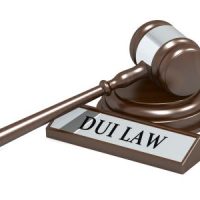Hidden DUI Defenses in Florida

UI (under the influence) is usually the most contested element in a DUI case. D (driving) could be an issue as well. Legally, both basic elements must meet the same requirements. Prosecutors must establish every element of every criminal offense beyond any reasonable doubt.
Usually, the state uses chemical test results, typically a Breathalyzer test, to prove UI. However, prosecutors must always use circumstantial evidence to prove D. This distinction often makes D the weak point in the state’s case.
If the state’s case has a weak point, and a Tampa DUI lawyer aggressively challenges the evidence in this area, the end result is usually a favorable plea bargain agreement or a favorable result during a pretrial hearing or at trial itself.
Not Operating the Vehicle
In Florida, “driving” basically means “operating,” at least in this context. If the vehicle is in good working order and if the defendant has the keys or is otherwise capable of operating the vehicle, the defendant is “driving” the vehicle for DUI purposes.
Assume Paul is passed out asleep behind the wheel. He’s driving the vehicle, if the state proves the two aforementioned “ifs” beyond any reasonable doubt.
Let’s look at the second “if” first. Usually, car keys are among the personal property that defendants surrender when they go to jail. Furthermore, if the defendant was breathing, s/he was capable of driving the vehicle. Safely driving the vehicle is another matter.
The defendant’s driving capacity is much easier to establish than the vehicle’s driving capacity. Usually, officers don’t note facts like the vehicle had gas and its tires were properly inflated. Additionally, cars with gas in the tank sometimes don’t run. Since the burden of proof is so high in criminal court, jurors cannot connect the dots on their own or assume anything. Prosecutors must spell it out.
A Tampa criminal defense lawyer can salvage the situation even if the defendant admitted to driving the vehicle or the officer’s body camera was on.
Unless officers promptly and properly Mirandize defendants, any statements they make are inadmissible in court. Additionally, any evidence they find as a result of an illegal interrogation (I buried the body here) is fruit from a poisonous tree.
Additionally, prosecutors must properly authenticate body cameras and other photographic evidence. This evidence is also inadmissible if the camera or other recording device wasn’t working properly or hadn’t been serviced recently.
Location Technicalities
On a related “driving” note, prosecutors must file charges in the correct county and prove the defendant was operating a motor vehicle in a public place.
Many communities in the Tampa Bay metro area straddle one or more county lines. Pinellas County judges only have jurisdictions over offenses that occurred in Pinellas County and so on. If they file in the wrong county, prosecutors must simply start over in the correct county. However, rather than go through all that trouble, they’d usually rather resolve the case via plea bargain.
Most streets and highways are public property. Parking lots and driveways are private property. Streets inside large pedestrian shopping malls or apartment complexes are also private property, even if they have street names.
Reach Out to a Thorough Hillsborough County Attorney
A criminal charge is not the same thing as a criminal conviction. For a free consultation with an experienced criminal defense lawyer in Tampa, contact the OA Law Firm. We routinely handle matters in Pinellas County and nearby jurisdictions.
